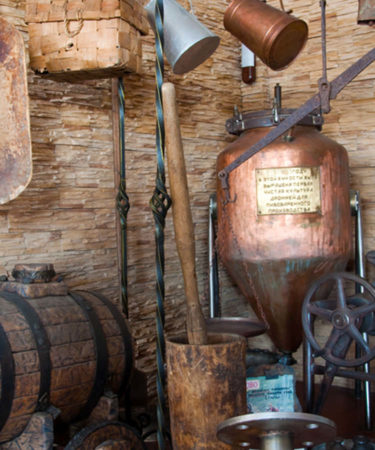Denise Marlere runs a thriving brewing business from her home. Her husband, Nicholas, is a butcher.
This may sound like a hipster couple in the Hudson Valley, but our duo lives in Bridgewater, England, in the 1300s. Our story ends in 1401, when Denise dies and leaves her brewing supplies and business to her servant, Rose.
Women like Denise and Rose were not rarities in medieval England. They were called brewsters, a word that has nearly vanished from the English language, and they were the primary makers of ale for their families, their villages, and, in some cases, neighboring villages. But by the 16th century, the word “brewster” began to fade, and with it women were slowly, systematically erased from the profession they once commanded.
In her book, “Ale, Beer, and Brewsters in England: Women’s Work in a Changing World,” Judith M. Bennett takes a centuries-long dive into brewing culture in England from 1300 to 1600. Her deep analysis of medieval documents and archives reveals the reason women’s work became men’s work: Brewing became a thriving, profitable business.
The Black Death and the Birth of an Industry
English people drank a lot of ale in the 1300s, when it was consumed in mass quantities because water was polluted, wine was too expensive, and milk was used for cheese.
Before the first outbreak of the plague from 1348 to 1349, professional and amateur brewers were everywhere. Most households brewed ale and many also sold it. The majority was produced and marketed by women. Women appeared before local courts as brewers more than in any other capacity, although they were often identified as the daughters, wives, or widows of men.
After the Black Death subsided in the early 1350s, the brewing industry changed considerably. Although there were fewer people to drink it (2 million people perished in the plague), more ale was consumed after 1350 than in pre-plague days. Post-plague life saw improved diets, an increasingly commercial ale market involving alehouses and retailers and, ultimately, a more centralized brewing industry.
As regulation of ale became more controlled, and thus more profitable, women were pushed out. This was especially the case for “singlewomen” and widows. By 1500, few unmarried women brewed for profit. And married women brewers? “Their work was increasingly hidden behind the public personae of their husbands,” Bennett writes.
At this time, the gender distinction between “brewster” and “brewer” faded and “brewer” became the preferred term for ale makers of both sexes. Unfortunately, the formation of guilds further pushed women from the trade, excluding them from membership and undermining their work.
Women “hawked ale in the streets, they sold ale from their homes, and they carried ale on their backs from brewhouses to clients,” Bennett writes. But by 1600, the production of ale and beer transformed from a domestic, relatively unskilled profession dominated by women to an industrial, technologically advanced, and prestigious pursuit with men at the helm.
Of Hops and Men
Brewers in southeast England began using hops in the early 15th century. To distinguish the beverage from unhopped ale, it was called beer.
Beer eventually became the preferred brew and the dominant trade over ale because it was cheaper to make and easier to preserve and transport. It was also dominated by male brewers, as women had all but vanished from the brewing trade by 1600. Half a millennium later (that’s now), brewing remains a male-dominated industry, in England and around the world.
Thankfully, this is starting to change. Women are reclaiming roles in beer businesses, overcoming sexism and abuse. Global beer companies are appointing women to leadership positions, and small and independent breweries are seeing more women in their brewhouses, back offices, and taprooms. Organizations like the Pink Boots Society are educating and championing women in the profession, and festivals around the country are spotlighting female brewers, authors, and marketers.
We still have a long way to go. Next time you’re fighting through a line of neckbeards at a beer festival, remember who to thank for beer culture old and new: women like Denise.
